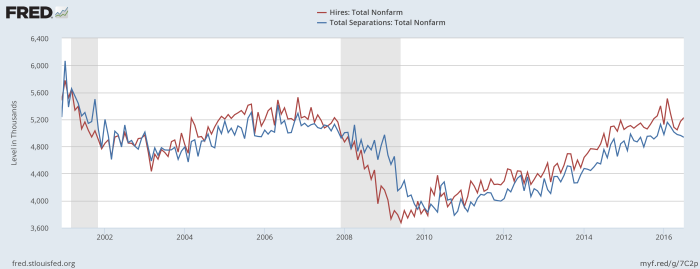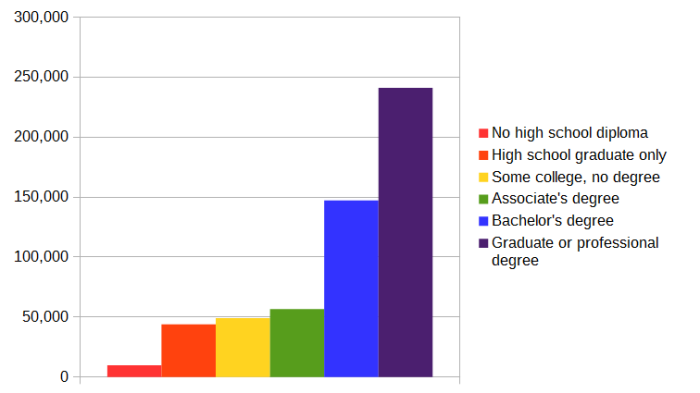Oct 30, JDN 2457692
In my previous post on ridiculous beliefs, I passed briefly over this sentence:
“People invest their identity in beliefs, and decide what beliefs to profess based on the group identities they value most.”
Today I’d like to talk about the fact that “to profess” is a very important phrase in that sentence. Part of understanding ridiculous beliefs, I think, is understanding that many, if not most, of them are not actually proper beliefs. They are what Daniel Dennett calls “belief in belief”, and has elsewhere been referred to as “anomalous belief”. They are not beliefs in the ordinary sense that we would line up with the other beliefs in our worldview and use them to anticipate experiences and motivate actions. They are something else, lone islands of belief that are not weaved into our worldview. But all the same they are invested with importance, often moral or even ultimate importance; this one belief may not make any sense with everyone else, but you must believe it, because it is a vital part of your identity and your tribe. To abandon it would not simply be mistaken; it would be heresy, it would be treason.
How do I know this? Mainly because nobody has tried to stone me to death lately.
The Bible is quite explicit about at least a dozen reasons I am supposed to be executed forthwith; you likely share many of them: Heresy, apostasy, blasphemy, nonbelief, sodomy, fornication, covetousness, taking God’s name in vain, eating shellfish (though I don’t anymore!), wearing mixed fiber, shaving, working on the Sabbath, making images of things, and my personal favorite, not stoning other people for committing such crimes (as we call it in game theory, a second-order punishment).
Yet I have met many people who profess to be “Bible-believing Christians”, and even may oppose some of these activities (chiefly sodomy, blasphemy, and nonbelief) on the grounds that they are against what the Bible says—and yet not one has tried to arrange my execution, nor have I ever seriously feared that they might.
Is this because we live in a secular society? Well, yes—but not simply that. It isn’t just that these people are afraid of being punished by our secular government should they murder me for my sins; they believe that it is morally wrong to murder me, and would rarely even consider the option. Someone could point them to the passage in Leviticus (20:16, as it turns out) that explicitly says I should be executed, and it would not change their behavior toward me.
On first glance this is quite baffling. If I thought you were about to drink a glass of water that contained cyanide, I would stop you, by force if necessary. So if they truly believe that I am going to be sent to Hell—infinitely worse than cyanide—then shouldn’t they be willing to use any means necessary to stop that from happening? And wouldn’t this be all the more true if they believe that they themselves will go to Hell should they fail to punish me?
If these “Bible-believing Christians” truly believed in Hell the way that I believe in cyanide—that is, as proper beliefs which anticipate experience and motivate action—then they would in fact try to force my conversion or execute me, and in doing so would believe that they are doing right. This used to be quite common in many Christian societies (most infamously in the Salem Witch Trials), and still is disturbingly common in many Muslim societies—ISIS doesn’t just throw gay men off rooftops and stone them as a weird idiosyncrasy; it is written in the Hadith that they’re supposed to. Nor is this sort of thing confined to terrorist groups; the “legitimate” government of Saudi Arabia routinely beheads atheists or imprisons homosexuals (though has a very capricious enforcement system, likely so that the monarchy can trump up charges to justify executing whomever they choose). Beheading people because the book said so is what your behavior would look like if you honestly believed, as a proper belief, that the Qur’an or the Bible or whatever holy book actually contained the ultimate truth of the universe. The great irony of calling religion people’s “deeply-held belief” is that it is in almost all circumstances the exact opposite—it is their most weakly held belief, the one that they could most easily sacrifice without changing their behavior.
Yet perhaps we can’t even say that to people, because they will get equally defensive and insist that they really do hold this very important anomalous belief, and how dare you accuse them otherwise. Because one of the beliefs they really do hold, as a proper belief, and a rather deeply-held one, is that you must always profess to believe your religion and defend your belief in it, and if anyone catches you not believing it that’s a horrible, horrible thing. So even though it’s obvious to everyone—probably even to you—that your behavior looks nothing like what it would if you actually believed in this book, you must say that you do, scream that you do if necessary, for no one must ever, ever find out that it is not a proper belief.
Another common trick is to try to convince people that their beliefs do affect their behavior, even when they plainly don’t. We typically use the words “religious” and “moral” almost interchangeably, when they are at best orthogonal and arguably even opposed. Part of why so many people seem to hold so rigidly to their belief-in-belief is that they think that morality cannot be justified without recourse to religion; so even though on some level they know religion doesn’t make sense, they are afraid to admit it, because they think that means admitting that morality doesn’t make sense. If you are even tempted by this inference, I present to you the entire history of ethical philosophy. Divine Command theory has been a minority view among philosophers for centuries.
Indeed, it is precisely because your moral beliefs are not based on your religion that you feel a need to resort to that defense of your religion. If you simply believed religion as a proper belief, you would base your moral beliefs on your religion, sure enough; but you’d also defend your religion in a fundamentally different way, not as something you’re supposed to believe, not as a belief that makes you a good person, but as something that is just actually true. (And indeed, many fanatics actually do defend their beliefs in those terms.) No one ever uses the argument that if we stop believing in chairs we’ll all become murderers, because chairs are actually there. We don’t believe in belief in chairs; we believe in chairs.
And really, if such a belief were completely isolated, it would not be a problem; it would just be this weird thing you say you believe that everyone really knows you don’t and it doesn’t affect how you behave, but okay, whatever. The problem is that it’s never quite isolated from your proper beliefs; it does affect some things—and in particular it can offer a kind of “support” for other real, proper beliefs that you do have, support which is now immune to rational criticism.
For example, as I already mentioned: Most of these “Bible-believing Christians” do, in fact, morally oppose homosexuality, and say that their reason for doing so is based on the Bible. This cannot literally be true, because if they actually believed the Bible they wouldn’t want gay marriage taken off the books, they’d want a mass pogrom of 4-10% of the population (depending how you count), on a par with the Holocaust. Fortunately their proper belief that genocide is wrong is overriding. But they have no such overriding belief supporting the moral permissibility of homosexuality or the personal liberty of marriage rights, so the very tenuous link to their belief-in-belief in the Bible is sufficient to tilt their actual behavior.
Similarly, if the people I meet who say they think maybe 9/11 was an inside job by our government really believed that, they would most likely be trying to organize a violent revolution; any government willing to murder 3,000 of its own citizens in a false flag operation is one that must be overturned and can probably only be overturned by force. At the very least, they would flee the country. If they lived in a country where the government is actually like that, like Zimbabwe or North Korea, they wouldn’t fear being dismissed as conspiracy theorists, they’d fear being captured and executed. The very fact that you live within the United States and exercise your free speech rights here says pretty strongly that you don’t actually believe our government is that evil. But they wouldn’t be so outspoken about their conspiracy theories if they didn’t at least believe in believing them.
I also have to wonder how many of our politicians who lean on the Constitution as their source of authority have actually read the Constitution, as it says a number of rather explicit things against, oh, say, the establishment of religion (First Amendment) or searches and arrests without warrants (Fourth Amendment) that they don’t much seem to care about. Some are better about this than others; Rand Paul, for instance, actually takes the Constitution pretty seriously (and is frequently found arguing against things like warrantless searches as a result!), but Ted Cruz for example says he has spent decades “defending the Constitution”, despite saying things like “America is a Christian nation” that directly violate the First Amendment. Cruz doesn’t really seem to believe in the Constitution; but maybe he believes in believing the Constitution. (It’s also quite possible he’s just lying to manipulate voters.)






